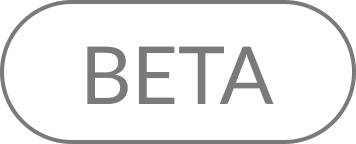- Home
- Learning Center
- Overview
- Legacy Strategy Framework
- Legacy Learning Methodology and Materials
- Organized Courses
- Individual Modules
- Comprehensive Document Architecture
- Customized Family Learning Programs
- Strategic Advisory Engagements
- Family Knowledge and Resource Center
- Raffles Family Wealth and Legacy Book Series
- Legacy Family Histories
- Join Us
- About Us
- History and USP
- Statement of Purpose
- Expert Team
- Advisory Services
- Honors and Awards
- Raffles Initiative for Global Policy and Leadership (‘RIGPAL’)
- Lord Mayor of London Global Family Office Summit
- Raffles Family Office Centre
- Raffles Family Office Network
- Speaking Engagements and Workshop Schedule
- Future Events
- TV and Appearances
- Trademarks
- Books
- Sign In
- Contact Us
A Principled Approach: Family Responsibility and Sustainable Investing
“There is no Planet B.”
— AUTHOR NAME
Course Overview
With each passing year, more and more wealthy families become sensitive to the impact their businesses and investments have on the world’s environmental, social and governance challenges.
In response, responsible investing has moved on from traditional negative screens on such industrial sectors as tobacco, alcohol and firearms to a more comprehensive and effective approach to investing with a measured impact on their ‘ESG’ impact.
Today, while still using negative screens, many families are embracing a more comprehensive set of values, practices, and approaches that contribute to a more holistic and proactive approach to principled investing, which also aligns a family ’s investment practices more firmly with its core values and beliefs.
The most advanced thinkers in this space, both family and institutional, take an integrated approach to principled investment. They incorporate ethics and principles in their brand, hiring practices, internal documents and processes, selection frameworks and evaluation criteria, due diligence priorities, monitoring criteria, and governance. The approach is both quantitative and qualitative, providing actual numbers on a more comprehensive set of metrics and a broader dialogue on issues and ideas not captured in those metrics.
HEADING COMING SOON
In essence, a more principled approach redefines “return” to embrace more inclusive measures of investment performance for both family businesses and family investments, going beyond the financial to embrace impact on the environment, community, and broad societal issues.
This effort to embed a broader agenda in family investment assessment and management, which has been variously defined and described as sustainable investing, venture philanthropy, ethical investing, principled investment management, and ‘philanthrocapitalism’, and usually incorporates financial, environmental, and community impact in its selection and return criteria.
Increasingly, the initiative to embed sustainability in all, or part of, a family’s investing activities can be a powerful bridge linking the rising generation to older members of the family.
Objectives
The objectives of this Core Course are to provide you with the concepts, options, frameworks, processes and approach necessary to define and implement your own successful program of sustainable and impact investing.
Instructors
INSTRUCTORS TO BE ADDED SOON.
Recommended Reading
| Book Title | Section / Principle | Chapters / Examples |
|---|---|---|
| Family Wealth Management | Imperative 3 | Chapter 13 |
| Strategy for the Wealthy Family | Principle 3 | Chapters 13-18 |
Sample Course Video
Your course progress
-
Definition and Types of Sustainable and Impact Investing
-
The Team and Approach: People, Processes, and Investments Seek to be of Uncompromising Quality, Deeply Aligned, Ethical, Fair, Long-Term Oriented, and not Harmful to Our World or People
-
Sectors for Investment Selected Which are Aligned with Creating Solutions to “Big” Problems in the World, Which can Lead to Sound, Excellent Investment Opportunities
-
The Investment Process: Applying a Principled Philosophy from Sourcing of Transactions through to all Phases and Filters in the Due Diligence Phase
-
Due Diligence: Beyond the Objectives of Achieving Organizational and Financial Alignment, Specifically Investigate the Fund Manager and the Investment Thought Process on Any Relevant Issues or Concerns
-
Post-Investment Approach: Principles, Governance, Strategy and Reporting
-
Overall Portfolio Management

